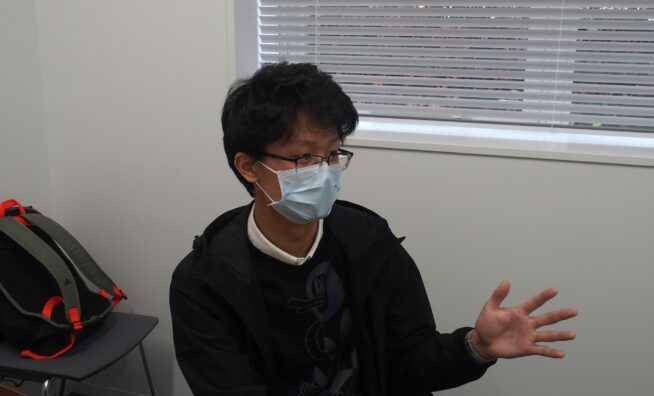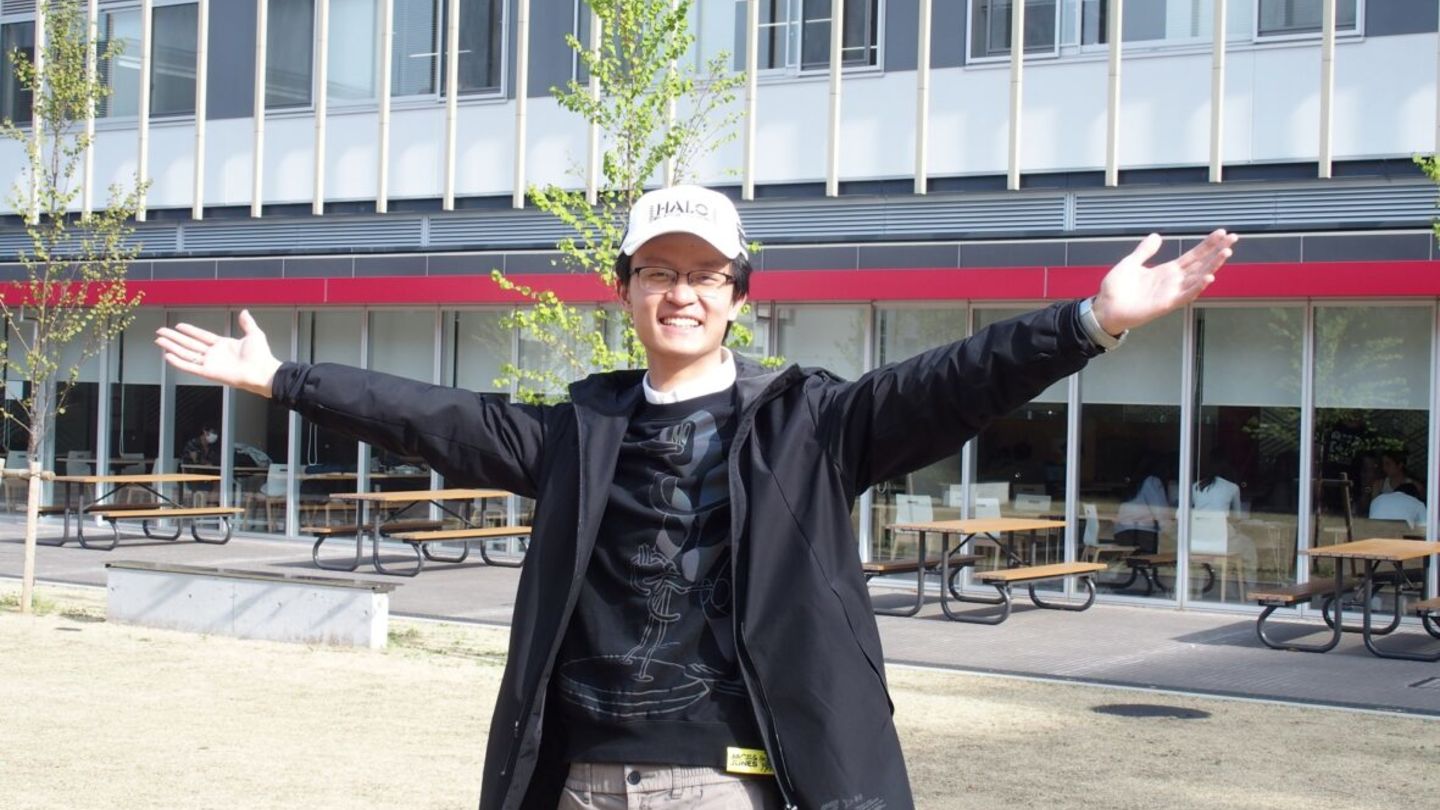Haoyang Chen came to Japan from Chengdu, China in early January with the desire to interact deeply with Japanese culture, even during the coronavirus pandemic. He had a valuable exchange experience in the TUJ homestay program with his host family in Suginami, Tokyo during spring semester (January – April 2021).
▼ Homestay During COVID-19 : Remote Work and Online Classes Under “New Normal”
-You speak such good Japanese. When did you start studying it?
Chen: I started studying Japanese in 2018 when I was in high school, and I passed level N2 of the Japanese Language Proficiency Test (JLPT) that July. After graduating high school, I studied at a Japanese language school in Kyoto for a year in 2019. My Japanese abilities improved even more, as I was able to make Japanese friends. I have been very interested in anime and Japanese culture since I was a child and I also read many books about Japan.

-Why did you choose TUJ?
Chen: While growing up in China, I was heavily influenced by the cultures of both Japan and the United States. I believe educational styles in Japan and China are similar. In China also, teachers give lectures in school, which makes classes teacher-centered. On the other hand, my friends who study in the U.S. told me about students-centered classes in American universities. Then I started to want to go to the U.S. After some research, I learned about TUJ, which I thought was ideal − getting an American education in Japan.
-How has it been, now that you have actually started studying at TUJ?
Chen: I really enjoy speaking with my professors. I think I made a really good choice coming to TUJ. Professors ask us questions and provide comments on answers. This leads to active discussions in class. The environment makes it easy to ask questions about anything that is difficult to understand, and even though I am a bit hesitant to speak up in class, I am very happy when I get to ask questions after classes. At one point I even stayed for half an hour after the class and kept asking questions to the professor.
-Why did you want to do a homestay?
Chen: When I was in Kyoto studying Japanese, although I made Japanese friends, I did feel a cultural barrier and felt some distant somehow. So I wanted to stay with a Japanese family when I started my college career so that I can get a better understanding of Japanese culture by immersing myself in it.

-What did you enjoy the most in the homestay program?
Chen: By communicating with the host family, native Japanese speakers, I believe my Japanese proficiency improved quite a bit. I felt my language skills improved remarkably when I was speaking with the host father and mother while watching TV after dinner. We exchanged opinions about the news, social issues, and international issues. It really was a great experience.
-Did you face any challenges?
Chen: I tried to adjust my daily routines around the host family’s, as we had different sleeping schedules. However, when there were concerns and issues, we were able to resolve them one at a time by communicating with each other.
-How did your family in China react when you said you would be studying abroad during the coronavirus pandemic?
Chen: They were really worried, of course, but they respected my decision and supported me. Since it was my dream to experience a homestay in Japan, I am very glad that I was able to make it happen. When TUJ informed me that my host family was decided, I was so happy that I emailed them in Japanese right away to introduce myself. I was relieved to hear later that my first impression was good. Thanks to that email and I am very grateful to have been able to make these great connections.
-Do you have any advice for new students considering a homestay?
Chen: First, learning some basic Japanese manners will make the transition into the host family smoother. Understanding fundamental rules not only shows your interest and respect for Japanese culture but also will make life in Japan much easier. Second, basic Japanese language skills will hugely improve the experience during the homestay. Communicating with their language will quickly promote the relationship with the host family, and it is important to take advantage of the opportunity to talk with native speakers. Finally, conflicts are common. Be prepared for that, and don’t be too emotional and panic when there is a disagreement. Try your best to communicate first or ask the university for help if you cannot resolve it.

